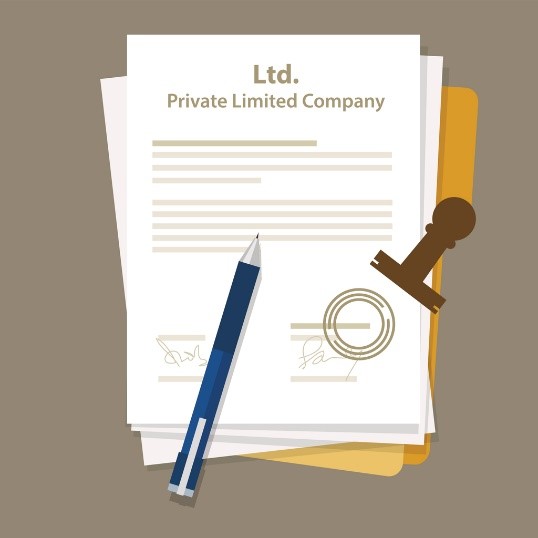When starting up your own company, there are so many different factors to consider, and ensuring you make the right decisions each time is a lot of pressure. Here at Company Registrations Online, we work with people daily regarding their limited company formation, so we have had plenty of experience assisting people in choosing the best route for themselves. So, we’re here for you if you’re considering setting up a limited company.
Today, we’re providing a guide on limited company structures to help you choose the best type for your business and its needs. We will explore some of the many different limited company structure types as well as information on our services for setting up a limited company.
What Is a Limited Company?
A limited company, also referred to as an LC, is a company type that limits liability undertaken by the company’s shareholders. It is either limited by shares, meaning that the business is separate from those who run it, has shares and shareholders, and usually makes a profit. Or, it is limited by guarantee, which usually refers to non-profit organisations, which are also separate entities from those who run it but instead have guarantors and invest any profits back into the business.
If a business is a limited company, it will have “Ltd.” at the end of its company name.

Who Is a Limited Company Best For?
A limited company can be beneficial for many different types of people, but it is mostly chosen by those who want to limit their personal liability for the debts and obligations of the business. This is because limited companies protect the owners’ personal assets if the business cannot meet financial obligations.
As mentioned, limited companies are popular amongst those looking to make a profit and those wanting to raise capital for another cause in the form of a non-profit organisation.
However, a limited company comes with certain responsibilities, such as complying with company law and filing annual reports, so weigh up the benefits and drawbacks before deciding if it’s the right choice for your business.
Different Types of Limited Companies
As mentioned, there are different types of limited companies, each providing its unique list of benefits and drawbacks for individual businesses. Therefore, it’s important to thoroughly understand each type of limited company to make the right decision for your business. So, let’s take a look.
Private Limited by Shares (Ltd)
A Private Limited by Shared (Ltd) is a business structure in which the liability of the owners, known as shareholders, is limited to the amount of capital they have invested in the company. As aforementioned, the shareholders’ personal assets are protected if the company cannot meet financial obligations. Because of this, it is popular for SMEs as it offers a balance of flexibility, limited liability, and the ability to raise a profit by issuing shares.

Regarding the ‘private’ element, these business structures have restrictions on the transfer of shares, and the number of shareholders is typically limited to 50.
Private Limited by Guarantee (Ltd)
A Private Limited by Guarantee (Ltd) is a business structure typically used by non-profit organisations and charities. Unlike a Private Limited by Shares (Ltd) company, owners in an Ltd by Guarantee do not own shares in the company but rather provide a guarantee to contribute a specified amount in the event the company is unable to meet its financial obligations. The owners are known as members rather than shareholders, and their personal liability is limited to the guarantee amount. Ltd by Guarantee companies do not have share capital, and any profits made must be re-invested in the company or used to benefit the company’s objectives.
Limited Liability Partnership (LLP)
This business structure combines a partnership’s flexibility with a company’s limited liability protection. In an LLP, partners have limited liability for the debts and obligations of the business, similar to shareholders in a limited company. Each partner is responsible for their own actions, and their personal assets are generally protected if the business cannot meet its financial obligations. Professionals, such as lawyers, accountants, and architects, often use LLPs as they provide a structure that allows partners to work together while limiting their personal liability.

Public Limited Company (PLC)
This business structure is authorised to sell shares to the general public, which makes it a popular choice for companies looking to raise capital. Shareholders in a PLC have limited liability for the debts and obligations of the company, similar to limited companies and LLPs. However, unlike private limited companies, which often have restrictions on the transfer of shares and the number of shareholders, PLCs can have an unlimited number of shareholders, and their shares can be traded on a stock exchange. As a result, larger, established businesses often use PLCs with a proven track record and seek to raise substantial capital.
Private Unlimited Company
Finally, a private unlimited company is a business structure in which the owners (known as members) have unlimited liability for the company’s debts. This means they are personally responsible for paying the company’s debts and can have their personal assets seized to repay them. This is in contrast to a limited company, where the members’ liability is limited to the amount of money they have invested in the company. In some countries, private unlimited companies are called “unlimited liability companies.”
Once you have an understanding of the different limited company structure types, you can decide which is the best for your business. Here at Company Registrations Online, we can assist you in forming your limited company and offer advice on which structure is best for you and your needs. If this sounds like a service you would benefit from, please don’t hesitate to get in touch, and we will be more than happy to assist.






